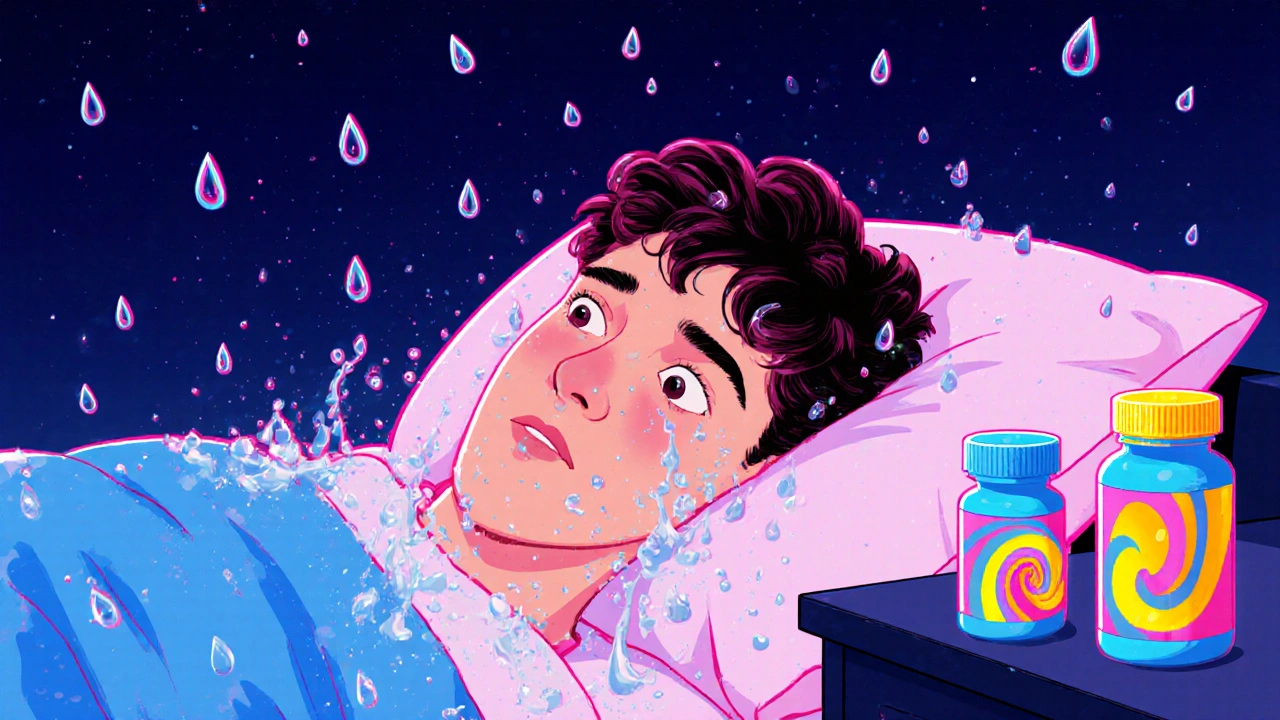Hot Flashes: Causes, Triggers, and What Actually Helps
When your body suddenly feels like it’s been thrown into a sauna—without warning, without reason—that’s a hot flash, a sudden feeling of intense heat, often with sweating and flushing, commonly linked to hormonal shifts during menopause. Also known as vasomotor symptoms, these aren’t just uncomfortable—they can disrupt sleep, mood, and daily life. They’re not rare. About 75% of people going through menopause get them, and for some, they stick around for years.
Hot flashes don’t happen because you’re stressed or out of shape. They’re tied to your hormonal changes, the drop in estrogen that affects how your brain regulates body temperature. Your hypothalamus, the part of your brain that acts like a thermostat, gets confused. It thinks you’re overheating, so it triggers sweat, faster heartbeat, and blood rushing to your skin. That’s the flash. It’s not your fault. It’s not in your head. It’s biology.
What makes them worse? caffeine, alcohol, spicy foods, and tight clothing are common triggers. Even a warm room or a stressful meeting can set one off. And they don’t just happen during the day—night sweats, hot flashes that wake you up at night, are a major reason people with menopause report poor sleep and fatigue.
There’s no one-size-fits-all fix. Some find relief with lifestyle tweaks—dressing in layers, keeping the bedroom cool, cutting back on triggers. Others turn to hormone therapy, a proven option that replaces estrogen to calm the brain’s overheating signals. But it’s not for everyone. That’s why people look at alternatives: plant-based supplements, acupuncture, even certain antidepressants prescribed off-label. The key is finding what works for your body, not what worked for someone else.
The posts below cover real-world approaches—from how thyroid meds can accidentally make hot flashes worse, to how antidepressants like amitriptyline and dosulepin are sometimes used to manage them. You’ll find comparisons of herbal options, tips on avoiding triggers, and insights into how other conditions like low blood volume or hyperprolactinaemia can mimic or worsen symptoms. This isn’t just about cooling down. It’s about understanding what’s really going on inside your body—and what you can actually do about it.
Medication‑Induced Sweating & Hot Flashes: Proven Relief Strategies
Learn why certain meds cause sweating and hot flashes, see which drugs are most often responsible, and get proven strategies-from antiperspirants to timing tweaks-to find relief.

